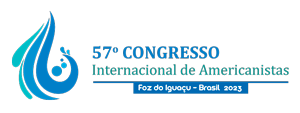| Dados do autor | |
|---|---|
| Sua instituição | Universidad Diego Portales; Universiteit Leiden UDP |
| País de origem do autor | Chile |
| Dados co-autor(es) [Máximo de 2 co-autores] | |
| Email escondido; Javascript é necessário. | |
| Nome completo | Jiaqi Liu |
| Sua titulação | Estudiante de Doctorado |
| Titulação | Estudiante de Doctorado |
| País de origem do co-autor | Estados Unidos |
| Instituição | University of California San Diego UCSD |
| Proposta de Paper | |
| Área Temática | 18. Migraciones |
| Grupo Temático | La participación política de los/las migrantes en América Latina |
| Título | Following the Paper Trail: Documents that Make People ‘Legal’ |
| Resumo | Being ‘legal’ has become shorthand for being ‘documented’. In contemporary societies, paper and digital documents determine a person’s legal status, affecting formal access to economic, social, and political rights. While the literature focuses on states using documents as instruments of control for immigrants, we also show they can be essential also to potential movers, emigrants, and return migrants. Stepping away from methodological nationalism, we consider individual freedom, regional contexts, and the global agenda to analyze states’ treatment of individuals as well as the outcomes and trade-offs of migration control. We build from a theoretical framework describing a set of chronological barriers to mobility and participation. We frame the temporal layers of migration control that determine who can obtain and maintain legal residence, much more complex than categories of nationals versus foreigners. The sequenced layers of legal status comprise pre-migration steps (t1), border crossing (t2), and post-migration steps in the short term (t3) and long term (t4). With examples of migration governance measures in South American countries and in China, we outline the ongoing paper trail to show that becoming then staying ‘documented’ is an ongoing temporal process. |
| Palavras-chave | |
| Palavras-chave |
|
